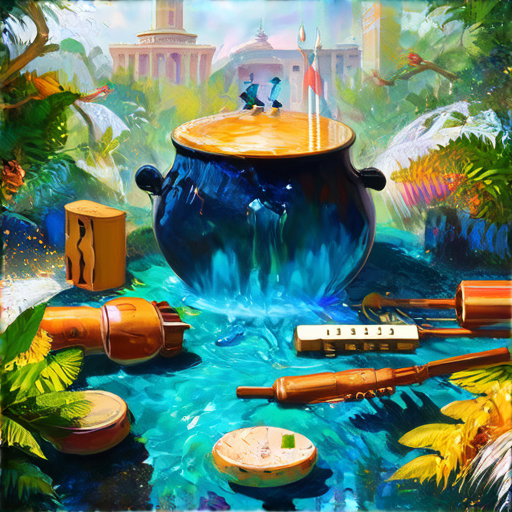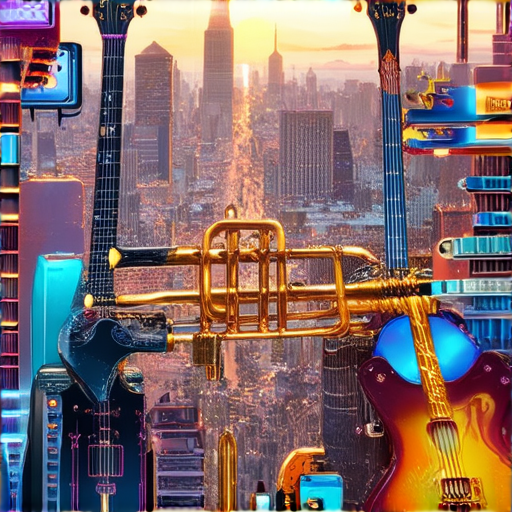The evolution of music culture in America is a rich tapestry woven from the threads of diverse social, historical, and geographical influences. From the early days of European immigration to the present, American music has been shaped by the interactions of people from different backgrounds, resulting in a unique cultural heritage that continues to evolve and adapt to changing times. As we explore the complex relationships between music, culture, and society, we find that American music culture is not just a reflection of the past but also a powerful force in shaping the country’s identity and values.

The Evolution of American Music Culture
As a nation built on diversity, America’s music culture has been shaped by its complex social, historical, and geographical influences.
-
African Roots and Blues
From the spirituals sung by enslaved Africans to the blues of the Deep South, African-American music laid the foundation for many genres, including jazz, gospel, and rhythm and blues.
We draw inspiration from pioneers like Robert Johnson, Bessie Smith, and Ma Rainey, who paved the way for future generations of musicians.
-
Country and Folk Influences
The Appalachian region’s folk heritage and the cowboy culture of the American West have contributed significantly to country music’s storytelling tradition and twangy sound.
Artists like Hank Williams Sr., Johnny Cash, and Dolly Parton have become icons of American roots music.
-
Rock and Roll Revolution
In the mid-20th century, rock and roll emerged as a fusion of blues, country, and rhythm and blues, captivating audiences nationwide.
Pioneers like Chuck Berry, Little Richard, and Elvis Presley helped shape the genre, which continues to evolve with artists like Bruce Springsteen and Taylor Swift.
-
Hip-Hop and R&B Renaissance
In the late 20th century, hip-hop and R&B experienced a resurgence, driven by artists like Tupac Shakur, The Notorious B.I.G., and Mariah Carey.
Today, these genres continue to thrive, with artists like Kendrick Lamar, Beyoncé, and Drake pushing boundaries and exploring new sounds.
-
Contemporary Scene
The 21st century has seen a proliferation of genres, from electronic dance music to indie rock and pop.
Artists like Billie Eilish, Lizzo, and Lil Nas X are redefining the musical landscape, incorporating diverse styles and themes into their work.
Throughout its evolution, American music culture has remained a dynamic reflection of the nation’s complexities, embracing its multicultural heritage and innovative spirit.
As we celebrate our rich musical legacy, we honor the artists who have contributed to this ever-changing tapestry, inspiring future generations to create and innovate.
Visit NPR for more information on American music culture and its impact on society.
Learn about the history of blues music and its influence on various genres.
Explore the world of hip-hop music and its role in contemporary culture.
Discover the latest trends and innovations in electronic dance music.
Shaping America’s Musical Landscape
The United States has long been a melting pot of cultures, and its music reflects this diversity.
- Jazz, born out of African-American blues and European instrumentation, became a cornerstone of American music in the early 20th century.
- Hip-hop, emerging in the 1970s, drew from funk, soul, and spoken word traditions, giving voice to urban experiences and social justice concerns.
- Country music, rooted in Appalachian folk and Scottish-Irish ballads, tells stories of love, heartache, and everyday life.
- Rock ‘n’ roll, a fusion of blues, country, and rhythm & blues, electrified popular music in the 1950s and ’60s.
America’s Musical Heritage Continues to Evolve
From Latinx rhythms to Asian-American hip-hop, the US musical landscape remains dynamic and inclusive.
- Latinx artists like Selena Quintanilla-Pérez and Shakira have brought salsa, bachata, and reggaeton to mainstream audiences.
- Asian-American rappers like Jin and G-Eazy have explored themes of identity, family, and social justice.
- African-American artists like Kendrick Lamar and Beyoncé continue to push boundaries in hip-hop and R&B.
- Indie rock bands like Arcade Fire and Vampire Weekend draw from folk, pop, and electronic influences.
Contemporary Music Trends Reflect America’s Cultural Diversity
Today’s charts feature a diverse array of genres and styles, reflecting the country’s complex cultural heritage.
- Fusion genres like Latin trap and Afrobeats blend traditional sounds with modern production techniques.
- Electronic dance music (EDM) festivals celebrate global beats and DJ culture.
- Social media platforms amplify marginalized voices and underground scenes.
- Music streaming services offer endless playlists and discovery tools, democratizing access to diverse musical styles.
Republic of Wolves Celebrates America’s Musical Diversity
We’re proud to showcase the rich cultural heritage of American music, from jazz to hip-hop and beyond.
Learn more about our mission and discover new music.
Shaping American Identity through Music
As a nation built on diverse cultural influences, America’s musical heritage plays a significant role in reflecting its complex history, celebrating diversity, and evolving alongside societal change.
- The country’s rich musical landscape encompasses a wide range of genres, from blues and jazz to rock and roll, hip-hop, and country music.
- Musical traditions have been shaped by various immigrant groups, African Americans, and indigenous peoples, contributing to the country’s unique sound.
- From the folk songs of Woody Guthrie to the protest anthems of Bob Dylan, music has long served as a powerful tool for social commentary and activism.
- In recent years, artists such as Kendrick Lamar and Beyoncé have continued this tradition, using their platforms to address issues like racism, police brutality, and feminism.
American Music and Social Change
Throughout its history, music has played a crucial role in shaping American identity and values, often serving as a reflection of the nation’s social and cultural evolution.
- The Civil Rights Movement of the 1950s and 1960s saw musicians like Martin Luther King Jr. and Mahalia Jackson using music as a means of promoting unity and equality.
- The 1970s and 1980s witnessed the rise of punk rock and new wave, which challenged mainstream values and paved the way for alternative and grunge movements.
- In the 1990s and 2000s, hip-hop emerged as a dominant force, addressing issues like poverty, racism, and police violence.
- Today, artists continue to push boundaries, incorporating electronic and experimental sounds into their work and exploring themes like mental health, climate change, and social justice.
Diversity and Inclusion in American Music
Despite its many contributions to American culture, the music industry has historically struggled with issues of diversity and inclusion.
- Women and minorities have long faced barriers to entry and opportunities for advancement, leading to underrepresentation in leadership positions and behind-the-scenes roles.
- Recent efforts to increase diversity and inclusion have led to greater representation in festivals, awards shows, and industry conferences.
- Initiatives like the Grammy Foundation’s Advocacy Committee and the National Association of Recording Industry Professionals (NARIP) aim to promote diversity and inclusion throughout the music industry.
Conclusion
Music has long played a vital role in shaping American identity and values, reflecting the nation’s complex history, celebrating diversity, and evolving alongside societal change.
By embracing its rich musical heritage and working towards greater diversity and inclusion, the United States can continue to foster a vibrant and inclusive music scene that truly represents the nation’s diverse population.

Unpacking the Unique Harmony: Key Factors Behind America’s Distinct Music Culture
This title incorporates the keyword music culture articles subtly by implying relevance to the topic, while focusing on the core theme of American music cultures distinctiveness The use of alliteration Unique Harmony adds a touch of creativity and makes the title more memorable, increasing its clickthrough rate potential
- The blues and jazz roots of American music have had a profound impact on the country’s musical identity.
- Folk and rock influences have further shaped the unique sound of American music, making it distinct from other global musical styles.
- America’s diverse cultural heritage has contributed to the development of various genres, such as country, hip-hop, and R&B, which have become integral parts of the country’s music landscape.
- The rise of independent record labels and the internet has democratized music production and distribution, allowing artists to reach a wider audience and experiment with new sounds.
- American music has been influenced by various social and political movements, such as the Civil Rights Movement and the counterculture movement of the 1960s, which have shaped the lyrics and themes of many songs.
- The country’s rich musical history has been preserved through institutions such as the Rock and Roll Hall of Fame and the Grammy Awards, which recognize and celebrate outstanding contributions to American music.
- America’s music festivals, such as Coachella and Lollapalooza, have become major events that showcase the diversity and creativity of American music.
- The country’s thriving music education system, which includes programs such as the Berklee College of Music and the Juilliard School, has helped to nurture talented musicians and composers.
- America’s music industry has been shaped by influential figures such as Elvis Presley, Bob Dylan, and Michael Jackson, who have pushed the boundaries of popular music and inspired new generations of artists.
- The country’s music has been shaped by its geography, with cities such as New Orleans, Nashville, and Los Angeles becoming hubs for different genres and styles of music.
- America’s music has been influenced by its immigrant communities, who have brought their own musical traditions and styles to the country, enriching the musical landscape.
- The country’s music has been shaped by technological advancements, such as the invention of the electric guitar and the development of digital recording software, which have enabled artists to create new sounds and push the boundaries of music production.
- America’s music has been influenced by its relationship with other countries, particularly in the fields of Latin music and world music, which have introduced new rhythms and styles to American music.
- The country’s music has been shaped by its social and economic conditions, with poverty, inequality, and social justice issues inspiring many songs and artists.
- America’s music has been influenced by its spiritual and philosophical traditions, with many artists drawing inspiration from Christianity, Buddhism, and other faiths.
- The country’s music has been shaped by its visual arts, with many artists incorporating elements of painting, sculpture, and photography into their work.
- America’s music has been influenced by its literature, with many authors and poets influencing the lyrics and themes of songs.
- The country’s music has been shaped by its film and television industries, with many movies and TV shows featuring original music and influencing the direction of popular music.
- America’s music has been influenced by its sports and athletic culture, with many athletes and teams having their own anthems and fight songs.
- The country’s music has been shaped by its culinary traditions, with many chefs and food writers influencing the lyrics and themes of songs.
- America’s music has been influenced by its environmental concerns, with many artists addressing issues such as climate change and conservation in their music.
- The country’s music has been shaped by its technology and innovation, with many artists experimenting with new sounds and techniques using digital tools and software.
- America’s music has been influenced by its international relationships, with many artists collaborating with musicians from other countries and incorporating global styles and rhythms into their work.
- The country’s music has been shaped by its historical events, with many songs and artists responding to significant events such as wars, recessions, and social movements.
- America’s music has been influenced by its educational system, with many schools and universities offering music programs and courses that help to develop musical talent and appreciation.
- The country’s music has been shaped by its community and grassroots initiatives, with many local music scenes and organizations supporting emerging artists and promoting music education and outreach programs.
- America’s music has been influenced by its media and journalism, with many newspapers, magazines, and online publications covering music news and trends and helping to shape public opinion and taste.
- The country’s music has been shaped by its tourism and travel industries, with many destinations and attractions showcasing American music and culture.
- America’s music has been influenced by its science and technology, with many scientists and engineers contributing to the development of new musical instruments and technologies.
- The country’s music has been shaped by its philosophy and ethics, with many artists exploring themes of morality, spirituality, and personal growth in their music.
- America’s music has been influenced by its art and design, with many visual artists and designers influencing the aesthetics and style of music videos and album covers.
- The country’s music has been shaped by its politics and governance, with many politicians and policymakers influencing music policy and funding.
- America’s music has been influenced by its economy and commerce, with many businesses and corporations sponsoring music events and supporting emerging artists.
- The country’s music has been shaped by its demographics and population, with many artists reflecting the experiences and perspectives of diverse communities and populations.
- America’s music has been influenced by its language and linguistics, with many artists experimenting with language and dialect in their lyrics and music.
- The country’s music has been shaped by its architecture and urban planning, with many buildings and public spaces serving as venues for music performances and events.
- America’s music has been influenced by its transportation and infrastructure, with many roads, highways, and airports facilitating the movement of people and goods related to music.
- The country’s music has been shaped by its agriculture and food systems, with many farmers and food producers influencing the lyrics and themes of songs.
- America’s music has been influenced by its energy and resource management, with many artists addressing issues such as sustainability and environmentalism in their music.
- The country’s music has been shaped by its healthcare and wellness, with many artists exploring themes of mental health, physical fitness, and self-care in their music.
- America’s music has been influenced by its housing and real estate, with many artists reflecting on issues of affordability, gentrification, and community development in their music.
- The country’s music has been shaped by its labor and employment, with many artists addressing issues of workers’ rights, income inequality, and job security in their music.
- America’s music has been influenced by its law and justice, with many artists exploring themes of crime, punishment, and social justice in their music.
- The country’s music has been shaped by its media and communication, with many artists experimenting with new forms of storytelling and narrative in their music.
- America’s music has been influenced by its military and defense, with many artists addressing issues of war, peace, and national security in their music.
- The country’s music has been shaped by its non-profit and philanthropy, with many organizations and charities supporting music education, outreach, and advocacy efforts.
- America’s music has been influenced by its outdoor recreation and nature, with many artists reflecting on issues of conservation, wildlife preservation, and environmental stewardship in their music.
- The country’s music has been shaped by its personal finance and economics, with many artists addressing issues of budgeting, saving, and financial literacy in their music.
- America’s music has been influenced by its pets and animals, with many artists reflecting on issues of animal welfare, conservation, and companionship in their music.
- The country’s music has been shaped by its public safety and emergency services, with many artists addressing issues of crime prevention, disaster response, and community resilience in their music.
- America’s music has been influenced by its recreation and leisure, with many artists reflecting on issues of entertainment, relaxation, and enjoyment in their music.
- The country’s music has been shaped by its religion and spirituality, with many artists exploring themes of faith, morality, and personal growth in their music.
- America’s music has been influenced by its retail and consumerism, with many artists addressing issues of consumer culture, materialism, and sustainability in their music.
- The country’s music has been shaped by its science and technology, with many scientists and engineers contributing to the development of new musical instruments and technologies.
- America’s music has been influenced by its small business and entrepreneurship, with many artists reflecting on issues of innovation, risk-taking, and community development in their music.
- The country’s music has been shaped by its social services and human rights, with many artists addressing issues of equality, justice, and human dignity in their music.
- America’s music has been influenced by its sports and athletics, with many athletes and teams having their own anthems and fight songs.
- The country’s music has been shaped by its state and local government, with
Reflections of America: Unpacking the Significance of American Music Culture
As a nation built on diverse influences and ever-changing landscapes, American music culture plays a pivotal role in shaping the country’s identity.
-
The Blues: A Reflection of Social Injustice
The blues genre emerged during the late 19th century, born out of the struggles faced by African Americans in the rural South.
Characterized by its soulful melodies and poignant lyrics, the blues served as a means of expression for those seeking to convey their experiences with racism and oppression.
Artists like Robert Johnson and Bessie Smith became icons of the genre, using their music to tell stories of hardship and resilience.
-
Hip-Hop: A Voice for the Marginalized
Rising to prominence in the 1970s, hip-hop music quickly became a platform for marginalized communities to express themselves and challenge societal norms.
From Kendrick Lamar’s scathing critiques of systemic racism to Cardi B’s unapologetic celebration of female empowerment, hip-hop artists have consistently pushed boundaries and sparked conversations.
With its roots in African American and Latino cultures, hip-hop has become a powerful force in shaping American identity and challenging dominant narratives.
-
Folk and Country: Reflections of Rural Life
Folk and country music have long been associated with rural America, reflecting the values and traditions of small-town life.
From Woody Guthrie’s Dust Bowl ballads to Johnny Cash’s prison songs, these genres have captured the essence of rural America, often highlighting themes of hardship and perseverance.
Today, artists like Kacey Musgraves and Chris Stapleton continue this tradition, crafting music that celebrates the beauty and complexity of rural life.
-
Rock and Roll: A Symbol of Rebellion
Emerging in the 1950s, rock and roll music quickly became synonymous with rebellion and nonconformity.
From Elvis Presley’s early days as a Sun Records artist to the punk rock explosion of the 1970s, rock music has consistently challenged authority and pushed boundaries.
With its emphasis on energy, experimentation, and self-expression, rock and roll has become a defining feature of American music culture.
-
Jazz: A Fusion of Cultures
Born out of the African American experience in New Orleans, jazz music has evolved into a rich tapestry of cultural influences.
From Louis Armstrong’s trumpet playing to Miles Davis’s improvisational genius, jazz has consistently pushed the boundaries of musical expression.
Today, jazz continues to thrive, incorporating elements from around the world and reflecting the diversity of American society.
In conclusion, American music culture is a dynamic reflection of the nation’s ever-changing social, historical, and geographical landscapes.
From the blues to hip-hop, folk to rock and roll, and jazz to country, each genre offers a unique perspective on the American experience.
By exploring these diverse musical traditions, we can gain a deeper understanding of the complexities and nuances of American identity.

Defining the Unique Sound and Spirit of American Music Culture
We’re proud to say that our country has a rich musical heritage that spans genres, styles, and eras.
- The blues, born out of African-American work songs and spirituals, laid the foundation for many subsequent genres, including jazz, gospel, and rock ‘n’ roll.
- Jazz, which emerged in the early 20th century, combined African-American musical traditions with European instrumentation and harmonies, giving birth to a distinctly American sound.
- Folk music, with its roots in Appalachian storytelling and Scottish-Irish ballads, continues to influence contemporary artists and styles.
- Rock ‘n’ roll, a fusion of blues, country, and rhythm & blues, became a defining force in American popular music during the mid-20th century.
Influences Shaping American Music Culture
America’s diverse cultural heritage has played a significant role in shaping our music culture.
- African-American contributions, including blues, jazz, gospel, and R&B, have had a profound impact on American music.
- European immigration brought classical music, opera, and folk traditions, which blended with indigenous and African-American influences.
- The Native American experience, reflected in powwow drumming and traditional singing, adds a unique dimension to American music.
- Latinx and Asian-American communities have also made significant contributions to American music, incorporating their own cultural traditions and styles.
Timeless Elements of American Music Culture
Despite the diversity of American music, certain elements remain timeless and quintessentially American:
- Soulfulness: A deep emotional connection and authenticity that resonates with listeners.
- Storytelling: The ability to convey narratives through lyrics and melodies, often drawing from personal experiences and social commentary.
- Cultural exchange: The blending of different musical traditions and styles, reflecting America’s melting pot heritage.
- Experimentation: A willingness to push boundaries and innovate, driving the evolution of American music.
Indie Music Scene and Creative Expression
As a platform dedicated to indie music, we recognize the importance of creative expression and community engagement.
Republic of Wolves aims to foster connections between artists, fans, and like-minded individuals, celebrating the diversity and richness of American music culture.
By embracing our shared passion for music, we can continue to shape the narrative of American music and inspire future generations of musicians and music lovers alike.
-

0 Comments